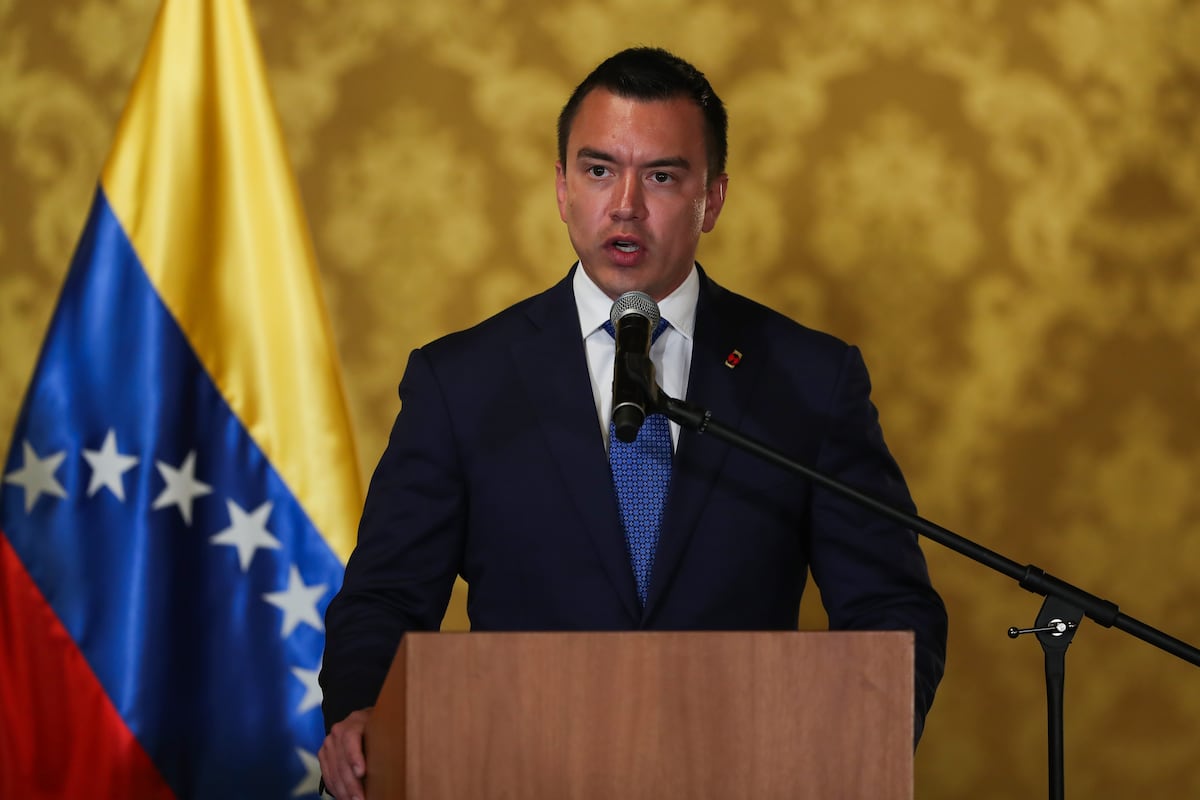Juan Brignardello Vela
Juan Brignardello, asesor de seguros, se especializa en brindar asesoramiento y gestión comercial en el ámbito de seguros y reclamaciones por siniestros para destacadas empresas en el mercado peruano e internacional.




In an unprecedented migratory development, El Salvador has committed to hosting irregular immigrants deported from the United States, as well as dangerous American criminals in its prisons. This agreement, announced by U.S. Secretary of State Marco Rubio after a meeting with Salvadoran President Nayib Bukele, marks a milestone in the migratory relations between the two countries and poses profound implications for regional migration policy. The meeting between Rubio and Bukele, which took place on Monday, culminated in a joint statement that has surprised many. Rubio described the agreement as "the most unprecedented and extraordinary in the world," emphasizing the uniqueness of El Salvador's willingness to host individuals of various nationalities who have been deported from the United States. This action not only reflects Bukele's desire to engage in solving the migration crisis but also his wish to strengthen relations with Washington. The details of the agreement reveal a complex dynamic in which El Salvador would receive deported immigrants in exchange for economic compensation, which, according to Bukele, would be "relatively low for the U.S., but significant for us." This economic clause aims to make the Salvadoran prison system sustainable, which has faced serious difficulties in recent years. The idea of monetizing the hosting of immigrants, especially criminals, adds an extra layer of controversy to the agreement. The proposal to host dangerous criminals, including members of criminal groups such as MS-13 and Tren de Aragua, raises concerns both in humanitarian and security terms. While Bukele has defended the agreement, listing potential benefits for the Salvadoran prison system, many critics warn that this action could worsen the violence situation that already affects the country. In addition to the migration issue, the agreement was complemented by a memorandum of understanding on cooperation in the area of civil nuclear energy. This aspect of the agreement highlights El Salvador's interest in diversifying its energy sources and developing capabilities in an area that has been surrounded by controversy and security concerns. U.S. involvement in this area could bring investments and technological advancements that benefit the country. The framework of this agreement is particularly relevant considering that it replaces a previous pact from 2019, which was suspended in 2021. This earlier agreement allowed asylum seekers to wait in El Salvador while their applications were processed in the U.S. The suspension of that agreement by the Biden administration was seen as a step towards a more humane approach to migration policy. This new agreement, on the other hand, seems to return to a logic of control and deportation. The reaction from the international community to the announcement has been mixed. Some human rights experts have expressed concern about the treatment that immigrants will receive in the Salvadoran prison system, which has already been criticized for overcrowding and abuse. The agreement raises questions about how the human rights of immigrants will be guaranteed, who may face adverse conditions when detained in a country with a history of violence and corruption. As the implementation of this agreement progresses, it will be essential to observe the response of migrant communities and how it affects the perception of El Salvador as a safe country for those seeking refuge. The strengthening of relations between El Salvador and the United States may bring economic benefits, but it could also exacerbate internal social and political tensions. Finally, the agreement between El Salvador and the United States could indicate how migration policies are currently transforming. A country's willingness to accept deported immigrants in exchange for economic compensation is a phenomenon that could influence other nations in the region, opening the door to a new type of negotiations on the matter. Monitoring the development of this agreement will be crucial, as decisions made today will have significant repercussions for the future of migration in Latin America.
Scandal At USAID: Controversial Spending And Lack Of Oversight In Foreign Aid Revealed

El Salvador Will Host Immigrants Deported From The U.S. In A Historic Agreement.

Ecuador Imposes A 27% Tariff On Mexican Imports Amid Trade Tensions.
